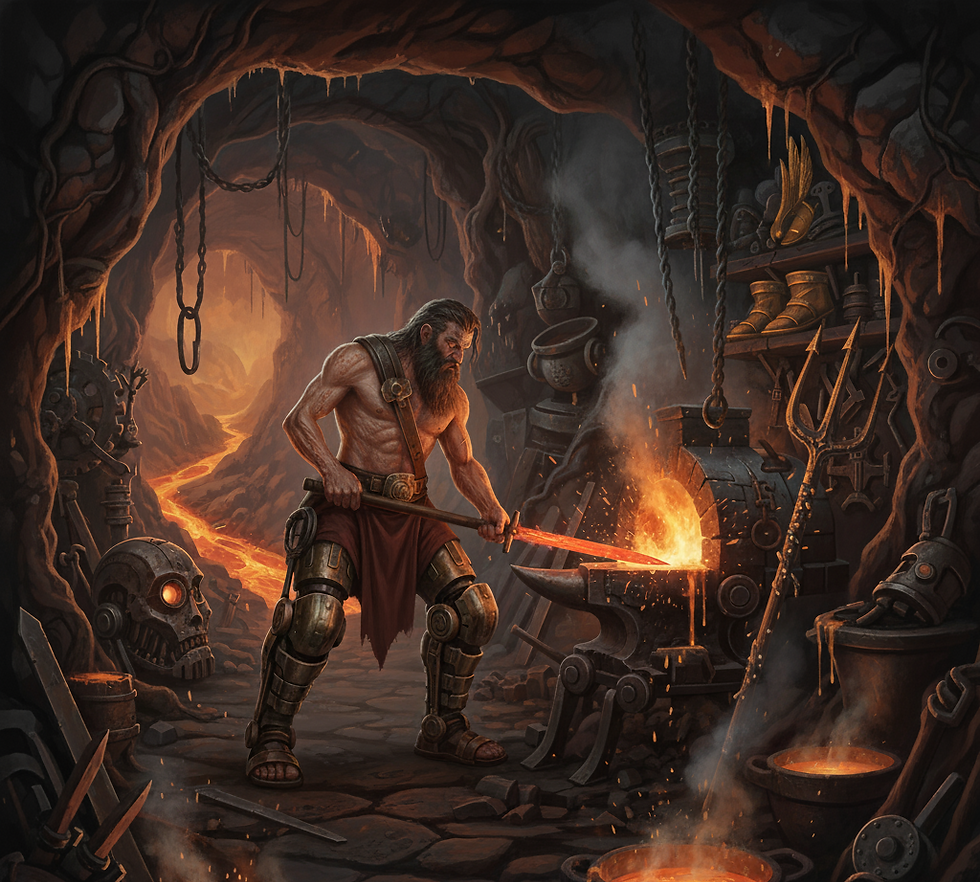Hephaestus - Greek God of Fire and Metalworkers
- Dani Resh

- Sep 11, 2021
- 2 min read
Updated: Nov 9, 2025
I have a strong admiration for craftspeople, which is why I find the story of the God of Fire and Metalworkers, Hephaestus, also known as Vulcan in Roman mythology, so intriguing.
Hephaestus was the son of the Greek goddess Hera, and she was unhappily married to Zeus, who was a serial cheater. Despite facing struggles of her own, Hera proved to be just as cruel and unempathetic. Hephaestus was born disfigured, with accounts of his physical appearance varying, including an enlarged torso, crippled legs, and excessive hair. Due to his appearance, Hera was ashamed and cast him out of Olympus. Fortunately, he was found and cared for by nymphs until he was old enough to apprentice as a blacksmith.

After mastering his craft, he sought revenge on his mother by creating a magnificent throne laced with a trap that ensnared Hera when she sat on it. The other gods pleaded with Hephaestus to release Hera, but he initially refused. Eventually, he was persuaded to return to Olympus and release Hera in exchange for Aphrodite as his wife. However, the marriage with Aphrodite didn’t last, as she left him for Ares. In retaliation, Hephaestus gifted a cursed necklace to Aphrodite’s daughter, bringing misfortune to its wearer.
Hephaestus coped with his broken heart by constructing vast underground workshops all over the world, complete with female apprentices made from gold. These workshops were so huge that the smoke and flames from volcanoes were actually the exhaust from his workshops deep within the earth. He became known for forging remarkable weapons and armor, such as the winged helmet and sandals of Hermes, Achilles’ armor, and Poseidon’s trident.
This story has it all. Revenge, redemption, lost love. Hephaestus began his life weak and disfigured, but ended up being a revered and admired blacksmith who went head-to-head with some of the most powerful gods. It could’ve been the ultimate underdog story, but sadly, Hephaestus proved to be just as ruthless and vengeful as his fellow gods.



Comments